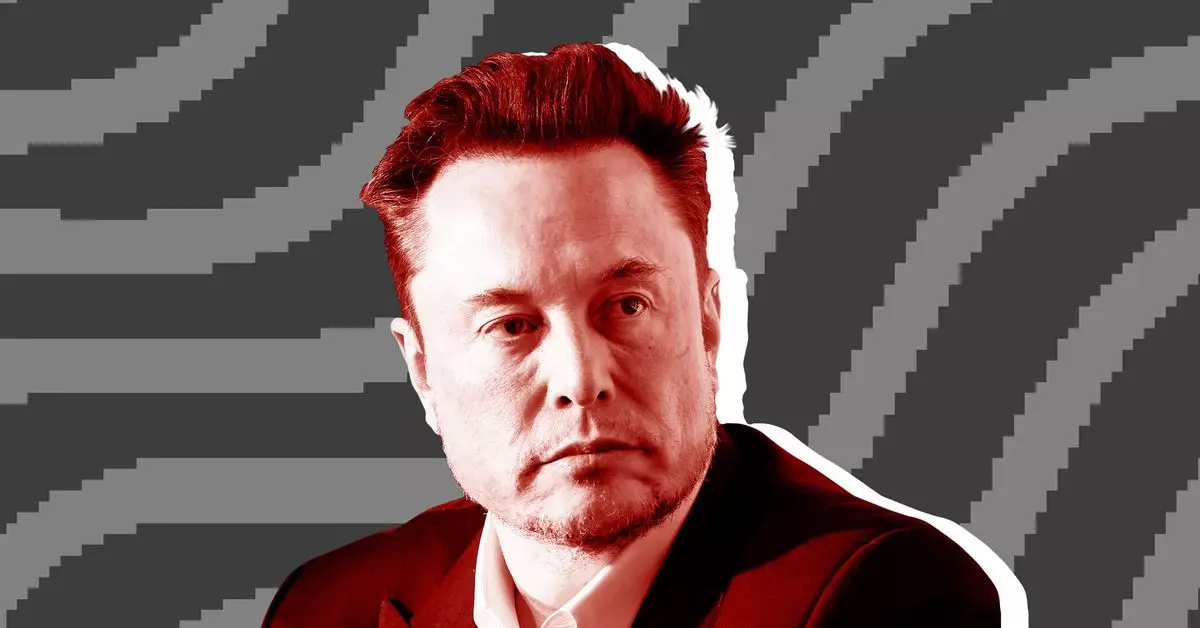In a dramatic twist within the political landscape, President-elect Donald Trump has announced the establishment of a unique department aimed at streamlining governmental processes, cheekily named the Department of Government Efficiency (DOGE). This initiative is spearheaded by none other than tech mogul Elon Musk and entrepreneur Vivek Ramaswamy, who are tasked with the monumental goal of pruning bureaucratic red tape, slashing unnecessary regulations, and ultimately reshaping the framework of U.S. federal agencies. The provocative choice of name alone has ignited both intrigue and skepticism as these prominent figures commit to “paving the way” for a restructuring of the federal bureaucracy.
The overarching objectives are bold and audacious; they promise a sweeping transformation of how government operates. With a deadline set for July 4, 2026, this new venture aims to provide long-overdue accountability within the $6.5 trillion government expenditure. The implications of this ambitious project echo the aspirations of past administrations, yet its execution remains fraught with challenges and questions.
Trump’s announcement highlights an aggressive push towards dismantling what many have labeled as a bloated bureaucratic system. Musk, known for his boundary-pushing ventures in technology and space, is expected to bring an innovative approach to an institution often resistant to change. By operating “outside of Government,” DOGE signifies an attempt to introduce private-sector efficiencies into public administration.
The potential for significant budget cuts, purportedly aiming for $2 trillion, raises eyebrows among fiscal analysts who warn that such reductions could lead to the gutting of vital government programs, particularly in sectors like defense and social welfare. While Musk’s willingness to make these hard decisions could signal a transformative era for government spending, the broader public must question the ramifications of such drastic measures.
Both Musk and Ramaswamy share a complex relationship with politics and are esteemed figures on the American landscape. Musk, a known supporter of Trump, contributes an unabashed affinity for challenging conventional norms, while Ramaswamy aligns with the administration’s objectives through his entrepreneurial background. Their collaboration could indeed be a game-changer—blending high-tech innovation with politics to tackle entrenched inefficiencies.
Trump’s optimistic outlook on this partnership stirs a sense of excitement for potential structural changes, as articulated in his public statements. Yet, the fine line between ambition and feasibility remains. The reality is that while DOGE’s idealistic goals may align with public sentiment favoring accountability, the operations of government inherently involve complexities that cannot be easily untangled.
Interestingly, the announcement has already had real-world ramifications, reflected in the doubling of Dogecoin’s value, an indicator of Musk’s substantial influence over both commerce and culture. The relationship between cryptocurrency, technology, and politics sparks conversations about the intersection of these domains and the potential to harness new methodologies in the pursuit of government accountability.
Public reception, however, is mixed; while some celebrate the prospect of a leaner government, others are wary of the implications of such a dramatic transformation, mired in skepticism regarding true governmental accountability. Will the DOGE initiative indeed channel a new wave of efficiency and effectiveness, or will it collapse under the weight of political maneuvering and the entrenched interests of powerful bureaucratic institutions?
As the initiative unfolds, it will undoubtedly serve as a pivotal moment in American governance. The Department of Government Efficiency represents not just an opportunity for reform but a litmus test for the feasibility of marrying entrepreneurial vigor with political pragmatism. Musk and Ramaswamy’s ambitious vision, filled with potential and peril, will require not only innovative strategies but also a genuine commitment to serving the American people effectively and transparently.
The coming years will determine whether DOGE will emerge as a transformative force within the federal landscape or become a cautionary tale of overreach amidst the complexities of governance. Each of these considerations invites ongoing dialogue and scrutiny, making the narrative of government efficiency a critical focus in the era after the 2024 elections.

